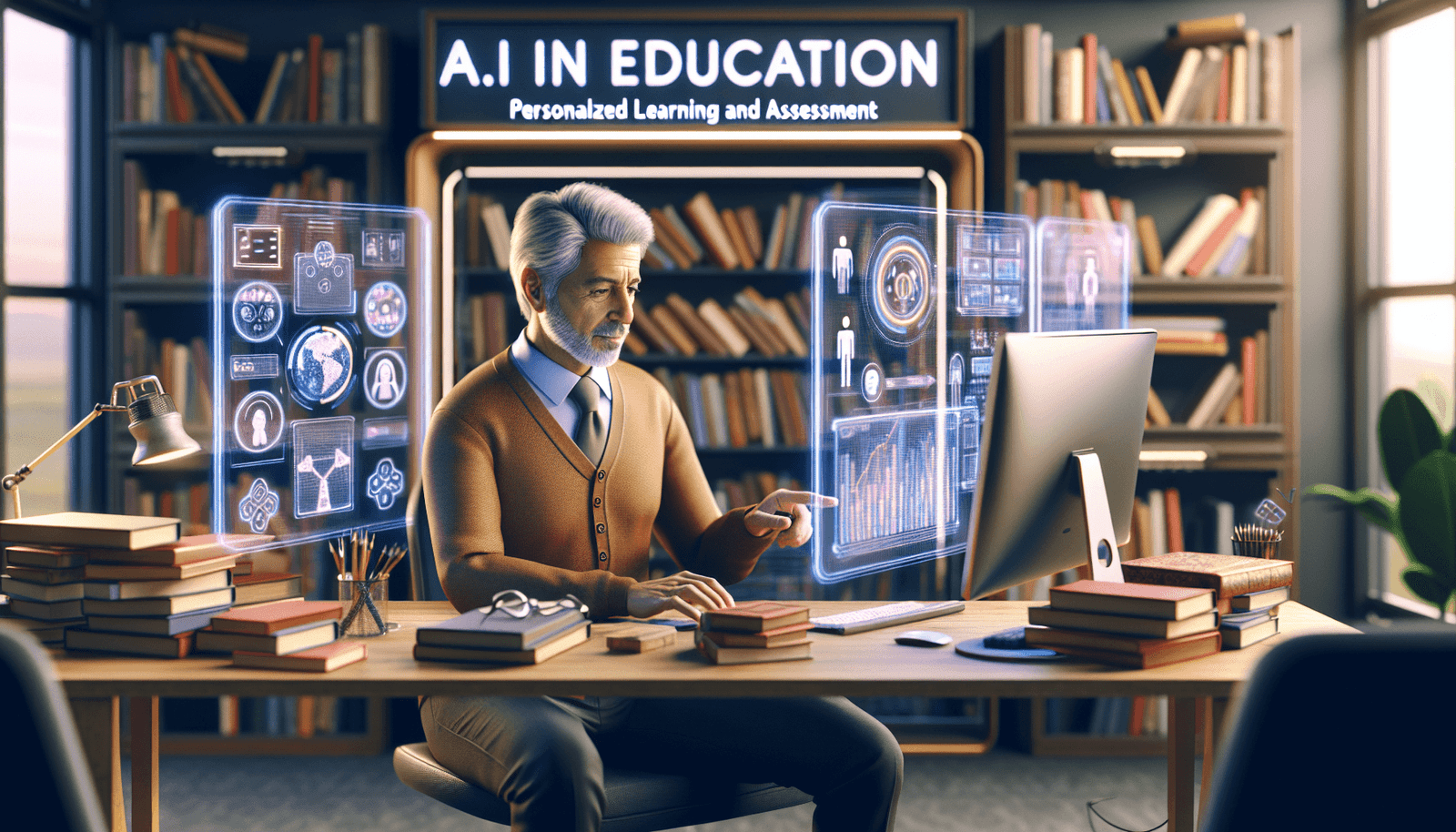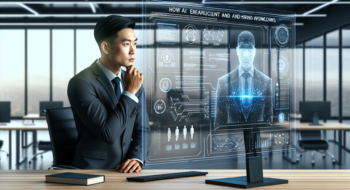AI in Education: Personalized Learning and Assessment
In the rapidly evolving landscape of education, Artificial Intelligence (AI) is emerging as a game-changer, revolutionizing the way students learn and teachers teach. The integration of AI in education is paving the way for personalized learning experiences that cater to the unique needs and preferences of each student. Here’s a deep dive into how AI is transforming education through personalized learning and assessment.
The Need for Personalized Learning
Traditional education often follows a one-size-fits-all approach, which can lead to disengaged students, high dropout rates, and suboptimal learning outcomes. However, with the advent of AI, educators can now create tailored educational experiences that address the individual needs of each student.
How AI Enables Personalized Learning
Adaptive Learning Platforms
AI-powered adaptive learning platforms are at the forefront of personalized education. These platforms analyze student data, including performance, strengths, weaknesses, and learning pace, to provide personalized learning pathways. By continuously assessing a student’s progress, these platforms adapt the instructional content and pace to optimize learning outcomes.
Intelligent Tutoring Systems
Intelligent tutoring systems, powered by AI, offer individualized guidance and support to students. These systems assess student understanding, identify areas of difficulty, and provide targeted explanations, feedback, and practice exercises. They adapt to each student's progress, ensuring that the learning material is always relevant and challenging.
Personalized Recommendations
AI algorithms can analyze vast amounts of data, including a student's past performance, interests, and goals, to generate personalized recommendations for educational resources. This helps students discover relevant content that matches their specific needs and preferences, enhancing their engagement and motivation.
Natural Language Processing (NLP)
AI-powered NLP allows for the development of intelligent chatbots and virtual assistants that can interact with students in a conversational manner. These AI assistants can answer questions, provide explanations, offer feedback, and engage in dialogue to enhance the learning experience. A notable example is "Jill Watson," a virtual teaching assistant developed by Georgia Tech, which has been recognized for its effectiveness in enhancing student engagement and performance.
Multimodal Learning
AI technologies facilitate multimodal learning experiences by incorporating various formats such as text, audio, video, and interactive elements. This approach caters to diverse learning styles, making the educational experience more personalized and engaging. For instance, AI can help students explore and understand concepts through different mediums, creating a more holistic and immersive learning environment.
The Role of AI in Assessment and Feedback
Automated Assessment and Feedback
AI can automate the assessment process, providing timely and personalized feedback to students. Intelligent grading systems can evaluate assignments, quizzes, and exams, enabling faster feedback delivery. This helps students identify their areas of improvement and provides targeted suggestions for further learning.
Data-Driven Insights
AI enables educators to gather and analyze large amounts of student data, including assessment results, engagement levels, and behavior patterns. By extracting meaningful insights from this data, teachers can gain a deeper understanding of individual students and make informed decisions to personalize their learning experiences effectively.
Benefits of AI in Education
Enhanced Student Engagement and Motivation
Personalized learning experiences tailored to each student's interests, abilities, and learning styles increase relevance and engagement. This approach fosters increased motivation, as students feel more connected to the material they are learning.
Improved Learning Outcomes
By adapting the learning pathway to meet the needs of each student, AI ensures that students receive appropriate challenges and support, maximizing their learning outcomes. Studies have shown that AI-powered learning can reduce dropout rates and improve overall academic performance.
Efficient Use of Resources
Automated instruction, assessment, and feedback create customized learning paths, allowing teachers to focus their efforts on personalized support. This efficient use of resources ensures that educators can provide more targeted and effective support to their students.
Real-World Examples and Future Directions
Georgia Tech's "Jill Watson"
The "Jill Watson" experiment at Georgia Tech is a prime example of how AI can be integrated into education. "Jill," an AI-powered virtual teaching assistant, was able to answer frequently asked questions without human intervention, enhancing student engagement and performance. This initiative highlights the potential of AI in creating personalized and effective learning environments.
Future of Personalized Education
As AI technologies continue to evolve, we can expect even more sophisticated personalized learning systems. The development of multifunctional virtual tutors that combine cognitive and metacognitive tutoring tasks is on the horizon. These tutors will be able to provide formative assessments, coaching on open-ended projects, and critical thinking development, further enhancing the personalized learning experience.
In conclusion, AI is revolutionizing education by providing personalized learning experiences that cater to the unique needs of each student. From adaptive learning platforms to intelligent tutoring systems and automated feedback, AI is transforming the educational landscape. As we move forward, the integration of AI in education will continue to play a crucial role in enhancing student engagement, improving learning outcomes, and preparing students for a future that demands adaptability and lifelong learning.
For more information on how AI is transforming education, visit neyrotex.com.
Additional Resources
- How AI and Data Could Personalize Higher Education: This article from Harvard Business Review explores the potential of AI in personalizing higher education and the challenges associated with its implementation.
- How AI Is Personalizing Education For Every Student: This piece from eLearning Industry delves into the various ways AI is being used to personalize education, including adaptive learning and intelligent tutoring systems.
- AI and the Future of Personalized Education: This article from Hyperspace discusses the future of personalized education with AI, highlighting benefits such as enhanced student engagement and improved learning outcomes.
As AI continues to shape the future of education, it's clear that personalized learning is here to stay. By leveraging AI technologies, educators can create more engaging, efficient, and customized learning experiences for every student. For a deeper dive into AI in education, check out neyrotex.com.







